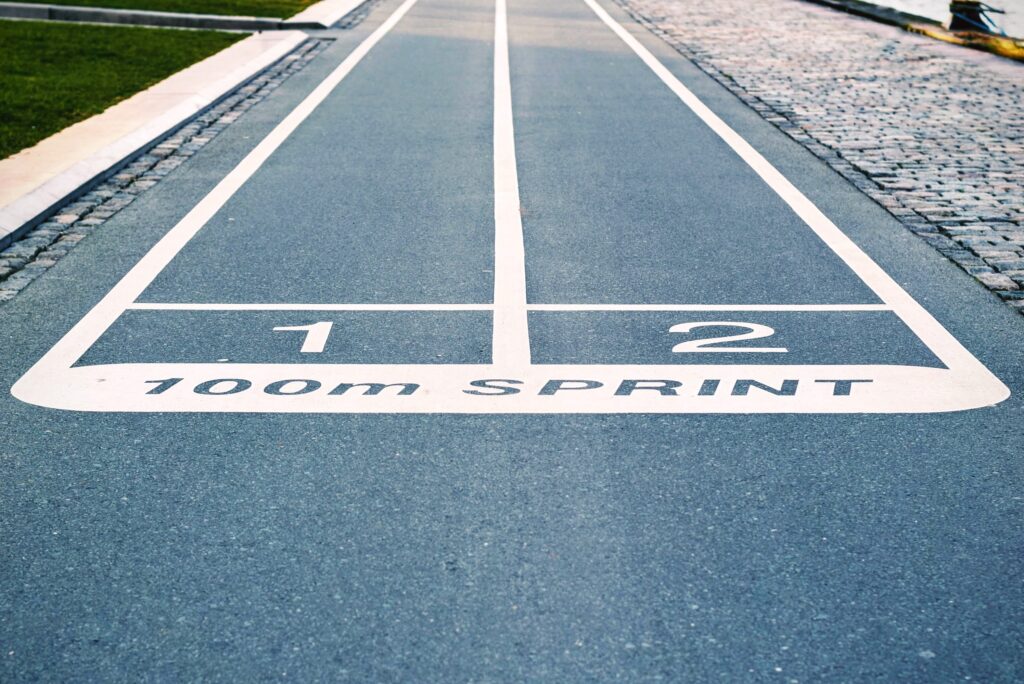How do you respond to competition and rivalry? Being competitive is one of our most natural survival instincts. It helps us to survive, think on our toes, to be vigilant and ultimately helps us to establish our own identities, purpose and roles.
Perhaps you thrive when faced with competition and rivalry? Or perhaps comparing yourself to others or the very prospect of competition impacts your confidence, wellbeing, personal and professional relationships, career progression and ultimately prevents you from unlocking your full personal and professional potential?
Career progression, promotions, personal and professional success, lifestyle success and work politics can create a melting point of conflicting emotions amongst ourselves and others.
So how can you start to change your perspective, take back your power and run for survival of the fittest when faced with competition and rivalry?
Here are 6 tips
1. Focus on yourself
If you constantly compare yourself to others, how is your time and energy being wisely spent or wasted? Instead, how can you use your time and energy to really focus on your own strengths, growth points and help you to achieve your goals?
2. Compete with yourself
Have you ever heard the saying “I’m too busy watering my own grass to notice if yours is greener!” Of course, being aware of the competition is important, but to succeed you need to become your own cheerleader and coach so that you remain accountable to developing a healthy long-term response to competitiveness.
Remember developing a healthy competitive spirit with yourself, is not the same as giving your inner critic a one-way ticket to run the show. Name and call out your inner critic because it will only hold you back! Instead, celebrate your achievements and develop the ability to create and listen to healthy constructive feedback for yourself.
3. What are your triggers?
When you think of competition or competitiveness what do you think of? Are you triggered by anything? Do you have any self doubt or limiting beliefs about your own capabilities? Once you develop a good self-awareness and begin to understand your triggers and where they have come from, you can effectively review and respond to the situation rather than to act on impulse.
4. No one has everything
It’s very easy to think some people have it all. They often present their ‘highlight reels’ (the best bits about their lives or careers) However, this is not always a true reflection of their reality, and everyone experiences issues, crises, or vulnerability. So why compare your reality to someone else’s highlight reel?
It’s also important to refrain from comparing chapter 1 of your life and career story to someone else’s chapter 10 of their story. Everyone has a different story and a different journey and everyone (no matter who they are) had to start somewhere!
5. Embrace positive competition
One of the most important skills when learning to change your response to competition, is to approach any fellow competitor with a curious mindset, rather than a fixed mindset. Be open to learning and be positively curious about what helps or hinders them, how they approach or respond to challenges and so forth. Jealousy, fear, envy and bitterness only eats away precious time and energy which could instead be used to help propel you forwards.
6. Celebrate achievements and goals
Celebrating or acknowledging other people’s wins or achievements is not a negative reflection of your self-worth or value. Instead, it reflects your emotional resilience and promotes healthy competition, relationships, communication and shows your commitment to your own personal and professional development.
It’s also vital that you also acknowledge and celebrate your own achievements. Keep a journal of your achievements and positive testimonials so that when your inner critic pops its head around the door, you have the evidence to celebrate your strengths and achievements so that you can consistently run your own race.
Next steps
If you compare yourself to others in your career or personal life and its affecting your confidence, career progression, personal happiness and professional or personal relationships, then why not connect with me to find out how personal coaching or executive coaching can help you to improve your confidence, improve your communication skills and support you to develop healthy strategies to stop comparing yourself to others.
Book your complimentary 15 minutes coaching discovery call here.


